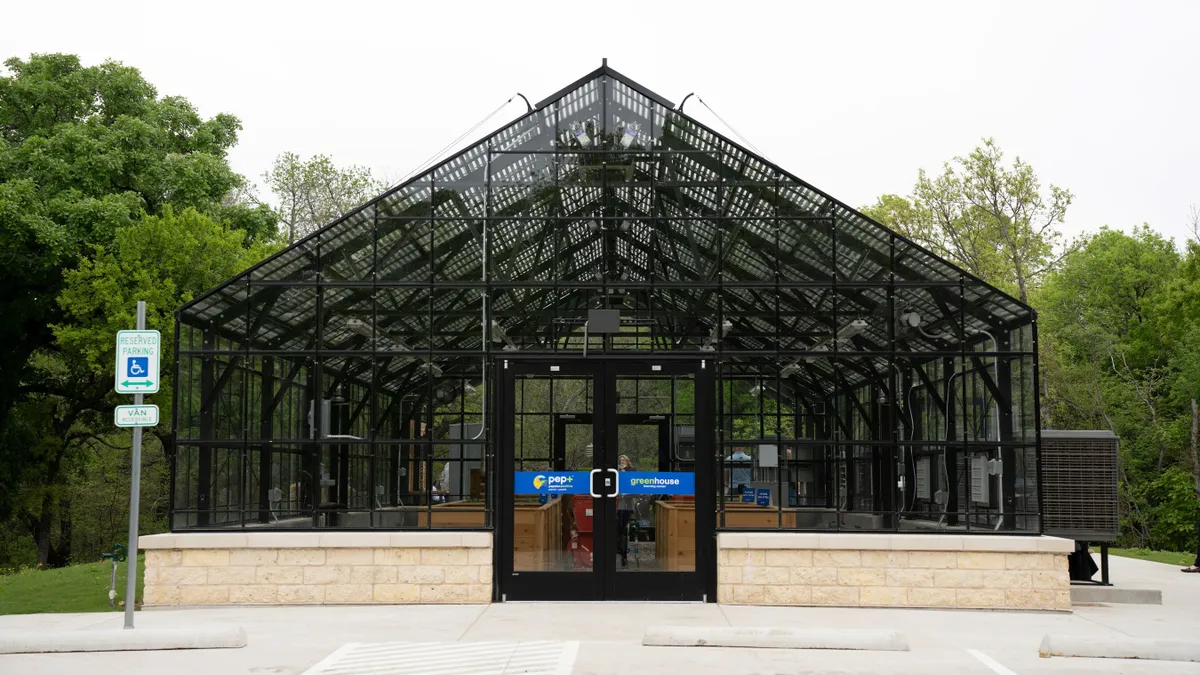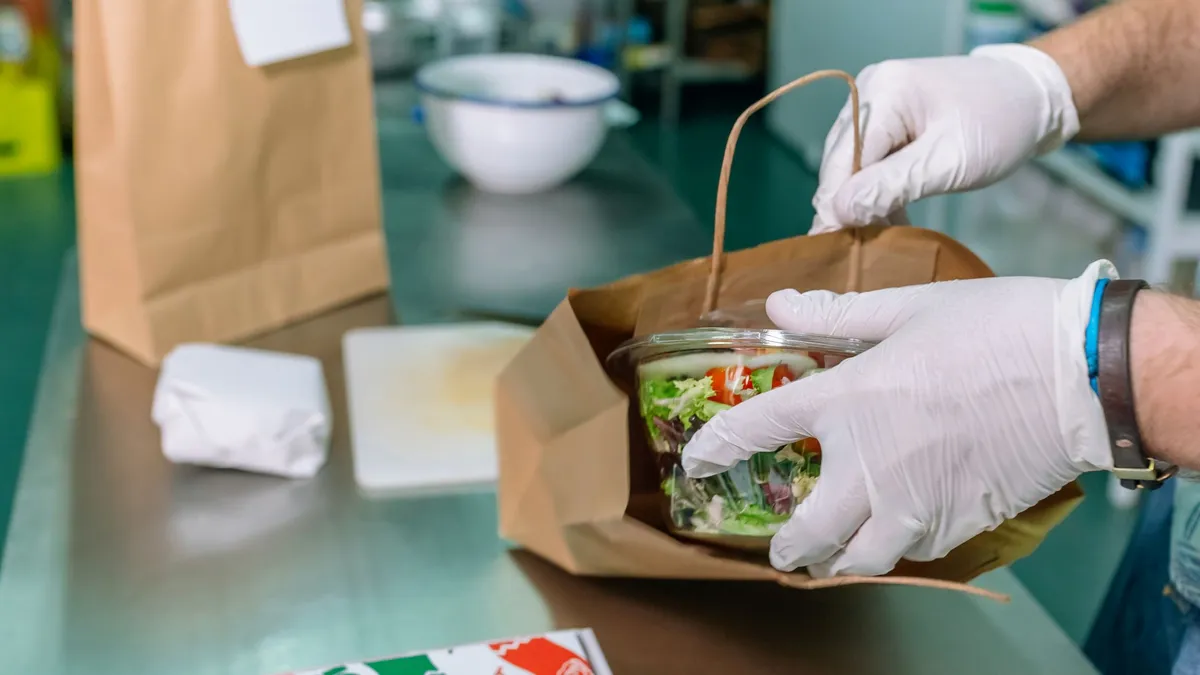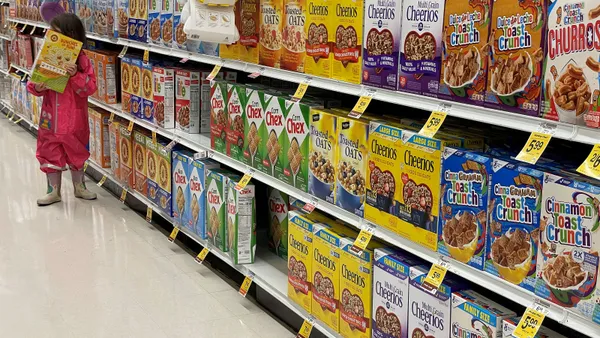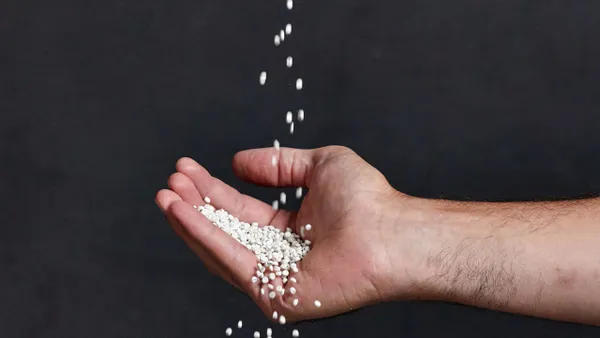Dive Brief:
- PepsiCo subsidiaries Frito-Lay and Quaker announced the opening of a compostable packaging-focused learning center Tuesday at their research and development headquarters in Plano, Texas.
- The Greenhouse Learning Center will be used for testing and demonstrating the biodegradation properties of compostable packaging in different environments and to rapidly increase the speed of innovation, said Denise Lefebvre, senior vice president of R&D for PepsiCo, in an email.
- The work aims to move the brands closer to PepsiCo’s sustainability goal to design 100% of its packaging to be recyclable, reusable, compostable or biodegradable by 2025.
Dive Insight:
The time and cost involved with the R&D to switch packaging design and manufacturing practices that have been optimized over the course of decades is a leading reason many brands aren’t on track to meet their 2025 sustainability targets. PepsiCo’s new compostable packaging learning center is specifically meant to cut down that lead time and get new products to market faster.
“Previously we relied on third-party labs for these types of trials, which can take months to a year,” Lefebvre said. “With our own Greenhouse Learning Center, materials can now move from testing to certification-ready at least two to three times faster.”
PepsiCo’s compostable packaging originates in its prototyping lab, and the new learning center will complement that work by testing and validating lab results via real-time experiments, Lefebvre said. The facility will allow for more efficient development by evaluating raw materials, field-testing new packaging solutions, providing a greater understanding of material disintegration speeds and accelerating the understanding of packaging’s biodegradation in soil.
Consumer packaged goods brands and retailers anticipate significantly increasing their use of compostable packaging materials over the next decade, but the U.S. doesn’t have the infrastructure yet to support composting at this scale, according to a recent report from the Association for Packaging and Processing Technologies (PMMI) and Ameripen.
A growing challenge to achieving scale is that some composters no longer accept paper or compostable packaging because of contamination concerns — a restriction that A1 Organics just enacted Saturday in Colorado — with some noting that compostable products don’t always break down fully in real-life time and operating conditions compared with lab testing.
PepsiCo will continue to learn from and partner with composters, including through its relationship with the Composting Consortium, to understand their concerns and work collaboratively on solutions, Lefebvre said.
“We understand that we need to work together with a variety of industry partners to build an ecosystem that supports compostable solutions, as well as implement a variety of sustainable packaging solutions to meet consumers where they’re at,” she said.
Although it just opened, the Greenhouse Learning Center is nearly at scale. Trials already are underway while the remaining testing environments are built out.















